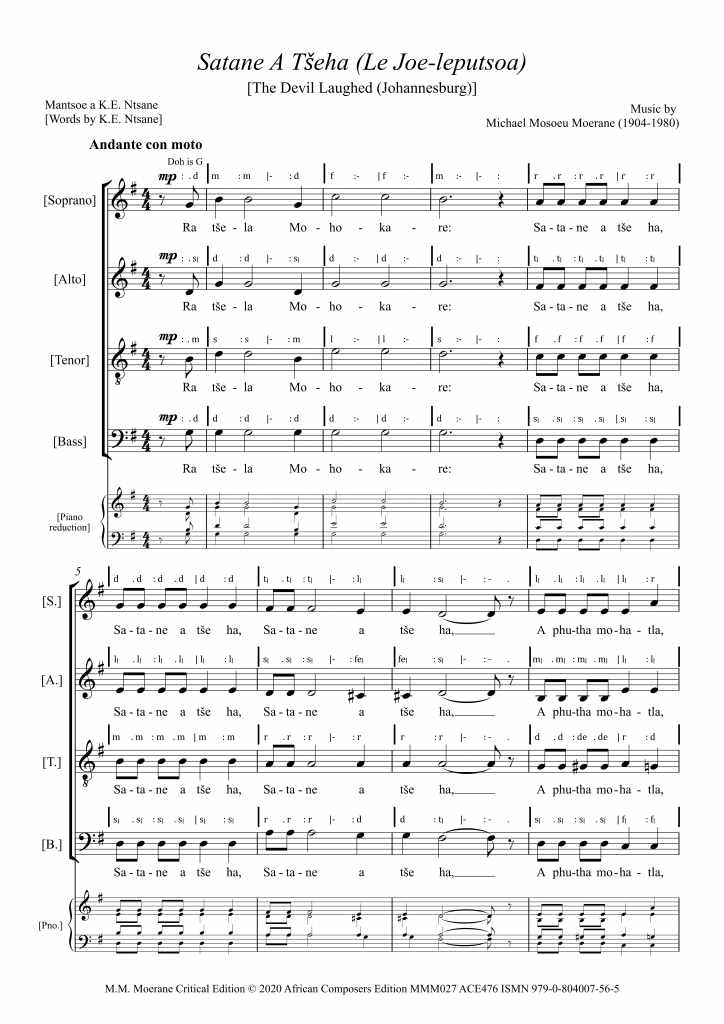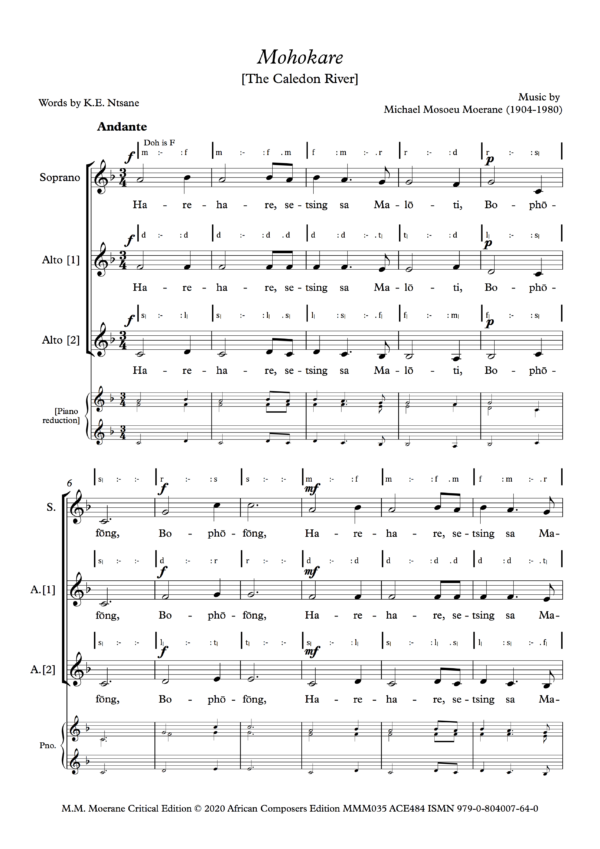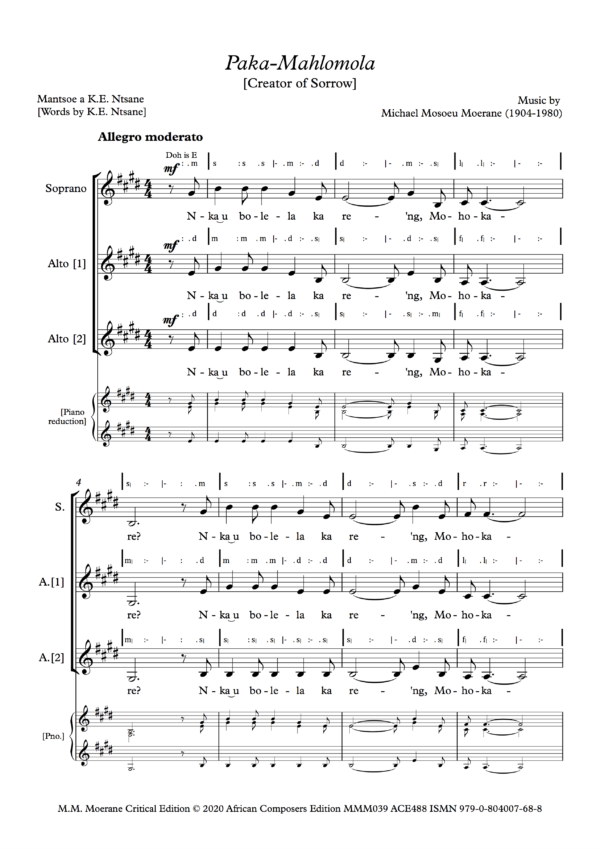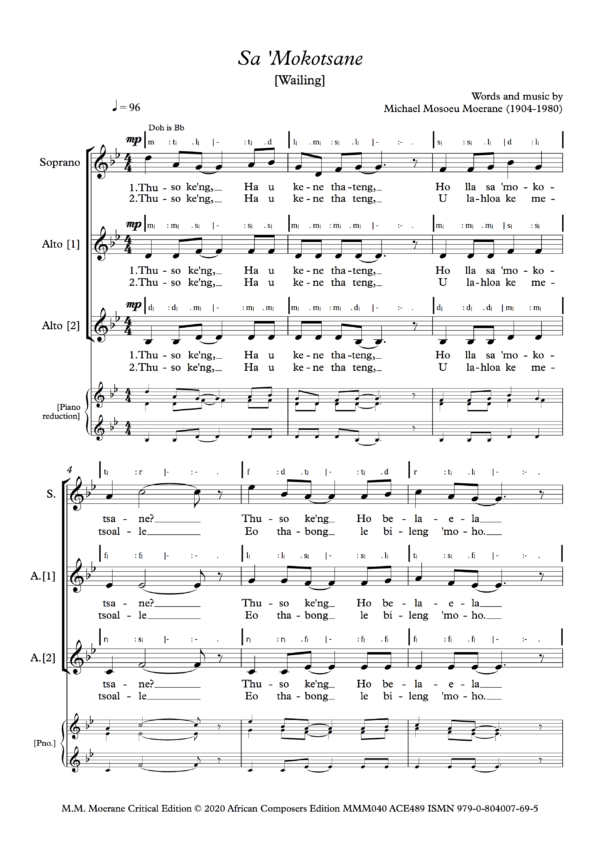Satane A Tšeha (Le Joe-leputsoa)

R49.00
K.E. Ntsane’s poem ‘Satane A Tšeha (Le Joe-leputsoa)’ and Moerane’s setting of it were both written well before the end of apartheid in South Africa and are about the menace and danger people from Lesotho were exposed to when they crossed between Lesotho (a sovereign state, not subject to apartheid laws) and South Africa. The Mohokare, known as the Caledon River in South Africa, forms part of this border. Ntsane portrays white South African border guards as ‘laughing devils’ because they joke about Sesotho, the language of Africans from Lesotho heading for ‘Le Joe-leputsoa’ (Johannesburg). The word ‘Joe-leputsoa’ itself can be roughly translated as ‘Joe Blue’ and may be a reference to the skin colour of whites, a tit-for-tat joke in face of flagrant racism. People from Lesotho had to cross the border to seek work on the mines of Johannesburg, since Lesotho was then (and remains now) a desperately poor country, dependent economically on South Africa. Despite the ominous text – or perhaps to help dispel its effect – Moerane’s Satane A Tšeha (Le Joe-leputsoa) is cheerful and confident with only a few sombre moments , and perhaps more expressive of the hope of earning money from ‘Joe-leputsua’ than being intimidated by him.
In order to help choirs learn this song, a free mp3 of the lyrics spoken by Mpho Ndebele is downloadable when the song is purchased along with a rehearsal mp3 of the song at a slow tempo.
Duration: 2’20”
The audio sample below was generated from the Sibelius file of the score and the image on the right shows the first page of the score.


